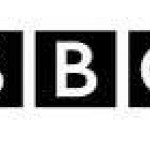- Industry: Broadcasting & receiving
- Number of terms: 5074
- Number of blossaries: 1
- Company Profile:
The largest broadcasting organisation in the world.
The leader of the minority party in the Senate.
He or she acts as a figurehead for the minority party in the Senate, articulating its policy positions and attempting to deliver its legislative priorities.
Industry:Government
A provision that directs federal funds to a specific project. An earmark is placed in either congressional legislation or committee reports. Members of Congress will typically seek to insert earmarks that benefit particular projects, locations or organisations in the district or state they represent. (See pork barrel politics).
Industry:Government
The appropriation of government spending - or "pork" - by a lawmaker for projects that are likely to benefit his or her constituents or campaign contributors.
Industry:Government
Front-loading describes the tendency for states to move their primaries and caucuses forward in an attempt to be among the first states holding a nominating contest.
State authorities believe that coming at the front of the queue increases their influence on the nomination process. However, critics argue that if too many states hold their contests in a short space of time, candidates are unable to connect with voters in each individual state.
A side effect is that the process starts earlier, and is drawn out over a longer period.
Industry:Government
Public money supplied to campaign funds that match donations made by individual contributors up to a maximum of $250 per donation.
Candidates are not obliged to take matching funds, but if they do, they must restrict their spending to a maximum of approximately $40m during the presidential primary period.
Democrats and Republicans are automatically entitled to a public grant to pay for the cost of conventions. Minor parties are also entitled to a smaller subsidy in proportion to the vote they received. New parties are not eligible.
Industry:Government
A state-level election held before a general election to nominate a party's candidate for office.
Primaries are held for both the presidential and congressional races, although the exact regulations governing them and the dates on which they are held vary from state to state. In some states voters are restricted to choosing candidates only from the party for which they have registered support.
However 29 states permit "open primaries" in which a voter may opt to back a candidate regardless of their nominal affiliation.
Industry:Government
A primary election (to select a candidate for the general election) in which only registered members of a party are permitted to vote. Registered Democrats vote for Democratic Party candidates, and registered Republicans vote for Republican party candidates.
Industry:Government
The segment of the US government budget that Congress has the power to allocate is discretionary spending. The remainder of the budget is entitlement spending - funds mandated by legislation to be spent on programs like Medicare and Social Security.
Industry:Government
Where Congress meets in Washington DC.
The Capitol building is home to both the Senate and House of Representatives as well as various committee and hearing rooms and an art gallery.
The steps of the domed Capitol building are the stage for the formal inauguration of presidents in the January following an election year.
Most states have their own capitol buildings in the state capital, many of which have a similar design to the building in Washington.
Industry:Government
